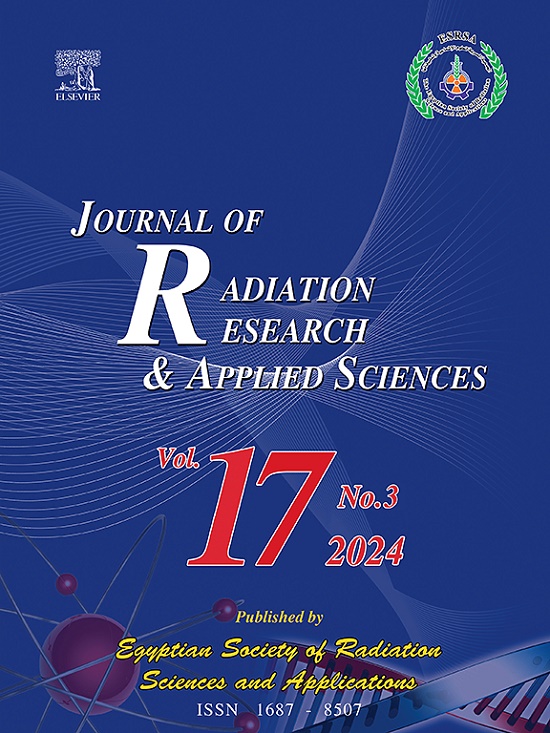Military expenditure and economic growth in the largest military spending country: Using machine learning analysis
IF 1.7
4区 综合性期刊
Q2 MULTIDISCIPLINARY SCIENCES
Journal of Radiation Research and Applied Sciences
Pub Date : 2025-03-18
DOI:10.1016/j.jrras.2025.101429
引用次数: 0
Abstract
The research conducted a comprehensive analysis of the relationship between military expenditure and economic growth in the United States. The findings revealed a significant negative correlation between increased military spending and GDP growth, indicating that as military expenditure rises, the rate of economic growth tends to decline. In contrast, the study identified a positive relationship between GDP growth and gross national expenditure when military spending is excluded. This suggests that investments in civilian sectors may yield better returns for economic expansion. Additionally, the analysis highlighted that inflation serves as a detrimental factor for GDP growth, often eroding purchasing power and destabilizing economic conditions. On the other hand, real interest rates and gross savings were found to positively influence GDP growth, suggesting that higher levels of savings and favorable interest rates can create a conducive environment for economic development. Based on these findings, the study recommends a reevaluation of military spending policies, advocating for a reduction in military expenditure to a level not exceeding 3.5 % of GDP. Such a shift could potentially redirect resources towards more productive sectors of the economy, fostering sustainable growth and enhancing overall economic stability.
军费开支最大国家的军费开支和经济增长:使用机器学习分析
这项研究对美国军费开支与经济增长之间的关系进行了全面分析。调查结果显示,军事开支增加与国内生产总值增长之间存在显著的负相关关系,表明随着军事开支的增加,经济增长率趋于下降。相反,该研究指出,在不包括军事开支的情况下,国内总产值增长和国民总支出之间存在正相关关系。这表明,对民用部门的投资可能会为经济扩张带来更好的回报。此外,该分析还强调,通货膨胀是GDP增长的一个不利因素,往往会侵蚀购买力,破坏经济稳定。另一方面,实际利率和总储蓄对GDP增长有积极影响,这表明较高的储蓄水平和有利的利率可以为经济发展创造有利的环境。基于这些发现,该研究建议重新评估军事开支政策,主张将军事开支削减到不超过GDP 3.5%的水平。这种转变有可能使资源转向生产效率更高的经济部门,促进可持续增长和加强整体经济稳定。
本文章由计算机程序翻译,如有差异,请以英文原文为准。
求助全文
约1分钟内获得全文
求助全文
来源期刊

Journal of Radiation Research and Applied Sciences
MULTIDISCIPLINARY SCIENCES-
自引率
5.90%
发文量
130
审稿时长
16 weeks
期刊介绍:
Journal of Radiation Research and Applied Sciences provides a high quality medium for the publication of substantial, original and scientific and technological papers on the development and applications of nuclear, radiation and isotopes in biology, medicine, drugs, biochemistry, microbiology, agriculture, entomology, food technology, chemistry, physics, solid states, engineering, environmental and applied sciences.
 求助内容:
求助内容: 应助结果提醒方式:
应助结果提醒方式:


